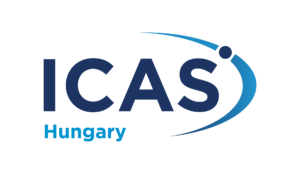 A blind spot: Corporate Social Responsibility – for our own employees
A blind spot: Corporate Social Responsibility – for our own employees
… or the human application of a carbon footprint
As an HR partner, or even just as an empathetic person, I have received lots of questions, inquiries every day from company employees about their own personal problems, and I often felt that I was not enough – either the lack of time or my expertise… As an HR professional, as a caring person I used to reflect a lot on how I could also provide support in certain topics, in which I would have found myself in a serious role conflict. In these situations my assistance could have been contraindicated – or simply said – I would not have been the best person to deal with the topic. It would have been great to know the concept of EAP in those times.… And to find an external, caring organization which is company-independent, yet a committed provider and organized. I wish I had an understanding of the real meaning and effects of their work, and to see their true colours, their “sales” – free attitude.
“My boss is unavailable, I have had enough…”, “She is sticking to the deadline so she can blame me afterwards”, “We’ve run out of budget and I can be fired due to the reorganization…”, “I have totally lost my patience for my new colleagues”, “My colleague crossed me again, even though we have a task together!”, “I’m so stuck and have no clue at all how to go on….”, “I am not able to recover from sleepless nights…..”, “My mother died, I am so embittered …”, “My husband raged out again last night…and so did I…”, “How am I going to get through this?”, “We would rent out our apartment but I have no idea what should be put in the contract.”, “My daughter insulted me terribly…we shouted at each other…we have drifted apart dreadfully…”, “Another month like this and I’m done!…”
I have heard countless times that a private organization is not a charity. It is true. You can’t be there beyond your limits for all your co-workers in most difficult moments. Some HR recede, some do not dare. And sometimes even a very caring manager can’t support all of his co-workers in every critical situation. Some of us don’t have the qualifications, or cannot help. Also, because when the employee has a really difficult problem does not necessarily want others — particularly not one of their bosses — to know about it…
I have come across countless initiatives to reduce the carbon footprint, to have green and paperless offices or to reduce energy consumption… But how to deal with the human footprint — a responsible organization should see beyond itself and should reduce any harmful effect on its own employees — I’ve only met these in rare, exceptional cases. As Jeffrey Pfeffer, the Standford professor says: “We should care about people, not just endangered species or photogenic polar bears, as we think about the impact of corporate activity on our environments. And as companies obsess over their carbon footprint, they would do well to consider their effects—their footprints— on the human beings, a carbon-based life-form, who work for them.” [1] In the spirit of CSR, a number of excellent initiatives towards the external social environment are known, and an increasing number of companies involve their employees in voluntary, external, charitable programs, which are undeniably valuable. Without questioning this “external” dimension of CSR, for a moment, starting from the very concept, let’s reverse the relation and explore the implications of Corporate Social Responsibility for “internal” effects of the corporate organization… What sort of responsibilities do companies have regarding their own organization effecting their employees? Or do we have any blind spot here?
Blind spot. In 1688, Edme Mariotte documented the phenomenon, since then we know that it is a deficiency in our vision which we do not recognize, because our visual system complements this missing field. This discovery required a change of perspective: Mariotte first discovered the phenomenon not on himself, but by the process of autopsy of animals – from an outsider view…what a completely different perspective! Beside all efforts on order to achieve business goals, the human sustainability can not stay in the blind spot of management. Implementing the Employee Assistance Program is the choice of decision makers being responsible for the organization. They are able to see the situation from both perspectives. As an individual they can reach out for help in difficult situations and from an outsider’s point of view they can see the difficulties of their own employees.
In those cases when employees face with several difficult problems in their lives they tend to end up alone which can cause loss of motivation, burnout, or learned helplessness. We all try to handle these complex and emotionally burdening situations individually with our own-developed coping skills. The behaviour of bosses, the bottled up conflicts with colleagues, work-life imbalance, a dissatisfied partner, a neglected, agitated child, illness of one’s own relative or friend, grief, shame, housing problems, financial or legal problems… And, in addition, the pandemic has increased mental burdens in many organizations compared to the past.
A reliable counsellor at an EAP provider should be able to provide support not only in simple life management issues but in ventilation and in reassuring our decisions in critical situations as well. What is a good EAP provider like? It should be available, treating the matter with due discretion, but dealing with it holistically. The service should operate constantly, respond flexibly, inform about difficulties that the organization can react on. The helping expert should have the knowledge about what it means to work for a multinational company, and should have an understanding of the organizational culture. Anyone who has personally experienced, as an HR partner or manager, the implications of a quality Employee Assistance Programme, appreciates the value of such a help. We do a lot for our employees every day. Would they need a service like that? This is the least we can do for our employees. Most importantly referring Professor Pfeffer’s research, there are significant impacts of companies on the mental and physical health of their employees, for which managements are responsible equally as for the carbon footprint. According to the research of Deloitte [2] in 2019 in Canadian companies the investments in mental health support programs deliver measurable, considerable return on investment.
[1] Jeffrey Pfeffer: Dying For A Paycheck. 2018 by HarperCollins, 8. oldal
[2] The ROI in workplace mental health programs: Good for people, good for business, https://www2.deloitte.com/global/en/insights/topics/talent/workplace-mental-health-programs-worker-productivity.html


